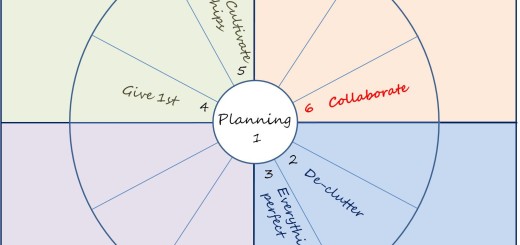Goal Success: Research shows how to reach your goals more effectively

Ever wonder what role certain emotions play in achieving what we want in life? And what about telling others our goals — does it help or does it hurt our chances of success? Passing along some interesting research I came across that seeks to answer these questions.
Cultivating Certain Emotions
In his article, “Three Emotions That Can Help You Succeed at Your Goals,” David Destano, author of Emotional Success and professor of psychology at Northwestern University, says that willpower isn’t the key to succeeding at goals.
He says that “Willpower doesn’t usually work. Willpower alone can’t ensure that you’ll delay gratification or resist temptation to achieve your long-term goals. It will fail, and probably just when you need it most.” But according to the findings from his research, if you focus on cultivating the emotions of gratitude, compassion, and pride instead of willpower, you’ll not only bring out your better nature, you’ll increase the stamina, self-control, and motivation needed to stick with and achieve goals.
I’m particularly interested in the connection he’s made between gratitude and self-control, “…experiments have shown that gratitude helps people be more future-oriented and exhibit more self-control.” I’ve been consciously practicing gratitude for years as a way to increase and sustain my personal happiness (Martin Seligman – https://youtu.be/ZOGAp9dw8Ac) and, therefore, also increase my learning capability (Shawn Achor – https://youtu.be/GXy__kBVq1M). It’s good to know there’s yet another side benefit of practicing gratitude.
Telling Others About Your Goals
Ever since Derek Sivers declared in his 2010 TED Talk that research shows you should keep your goals to yourself in order to succeed in achieving them, I’ve been perplexed. Was science saying that we shouldn’t bother having accountability partners? My accountability partner and I started sharing goals with each other in 2008, and we’ve never stopped. It’s actually helped to talk about our goals rather than keep them to ourselves. I’ve always assumed that it works for us because the repeated references to goals in regular meetings keeps us focused and successful. We’re not simply experiencing “substitution” by announcing a goal to get social acknowledgement and a feeling of instant gratification like Sivers points out in his TED Talk.
However, a recent study sheds some light on when and why it works to tell others about your goals. Howard Klein is the lead author of the 2019 study and professor of management and human resources at The Ohio State University’s Fisher College of Business. He was quoted in a Science Daily article: “Contrary to what you may have heard, in most cases you get more benefit from sharing your goal than if you don’t — as long as you share it with someone whose opinion you value.”
Apparently, the study examined individuals who looked up to someone, especially someone who would be in a position to evaluate their progress with a goal. This would explain why I succeeded with goals that I shared with my manager back when I worked in the corporate world. However, it’s not just that you look to the person as a superior. As Klein concluded, “The important thing is that you need to care about the opinion of who you are telling.” So, it sounds like, yes, we should tell others about our goals – it just depends on who we’re telling.
I’m curious. Do you share your goals with others? And, if so, with whom?
If you don’t currently have an accountability partner, but you’re wondering how you might go about getting one, check out my tips in “5 Steps For Picking An Accountability Partner.”
__________________________________________________________
Angela Loeb is into self-development & personal empowerment, being awed by nature, writing, and being inspired by superhero stories.
http://angelaloeb.com
© 2021



